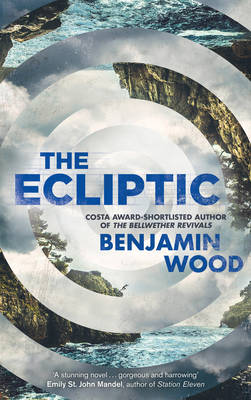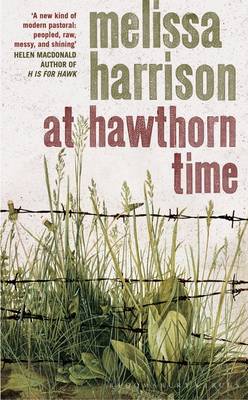A few notes on some of the books I’ve read lately…
 Benjamin Wood, The Ecliptic (2015)
Benjamin Wood, The Ecliptic (2015)
Benjamin Wood’s first novel, The Bellwether Revivals, explored themes of creativity and obsession. He returns to those themes, and takes them further, in The Ecliptic. We first meet Elspeth Conroy in the 1970s at Portmantle, an invitation-only refuge for artists who have become creatively blocked. The arrival of a mysterious teenage musician leads Elspeth’s past to catch up with her – a past we delve into, learning of her development as a painter, and how she ended up going to Portmantle. There’s a running theme of creativity becoming an all-consuming force in artists’ lives, a theme which gains its most powerful expression late in the novel, in quite an unexpected way. I’ll let you find out the rest for yourself…
Irenosen Okojie, Butterfly Fish (2015)
Published by Jacaranda, Irenosen Okojie’s debut is a kaleidoscopic novel which focuses primarily on Joy, who is trying to cope with the death of her mother Queenie. The figure of a mysterious woman appears in Joy’s life and photographs, and Joy finds herself fascinated by a bronze warrior’s head that belonged to her mother. Okojie weaves in other narrative strands, including one set in 19th century Benin, Nigeria (from where the bronze bust originates), and one examining Queenie’s arrival in London from Nigeria in the 1960s. Parallels and connections emerge, forming Butterfly Fish into an intriguing whole.
Raymond Jean, Reader for Hire (1986)
Translated from the French by Adriana Hunter (2015)
The second in Periene’s Chance Encounter series, and rather different in tone from White Hunger. At a friend’s suggestion, Marie-Constance places an advert in the paper, offering to read aloud to others in their own home. Her first client is a disabled boy named Eric; after she reads him a rather macabre section of a Maupassant short story, Eric is disproportionately affected, scared out of his wits. Marie-Constance has this ability, to evoke the deep effect of what she reads in her listeners – as she and others increasingly discover. The prose of Reader for Hire reflects this: the viewpoint stays close to Marie-Constance, so the book begins and ends with her life as a reader; and it feels quite sharply episodic, each chapter its own little story. All in all, a charming celebration of reading.
Melissa Harrison, At Hawthorn Time (2015)
At Hawthorn Time is, first and foremost, a novel of the modern English countryside: its chapters are headed with field notes, and images of the rural landscape run through its pages. Though the eye of narrative may be focused upon human characters, there is always the sense that they are defined by their interactions with the countryside. Melissa Harrison’s four main characters have different relationships with the country: Jack, a former radical protester, wanders across the land, both in close connection to it and yet somehow apart. Young Jamie is the rural native struggling with the realities of trying to make a living. Howard and Kitty are the urban incomers, whose marriage frays at the seams as they try to find their place. Their lives intertwine with each other and the landscape, heading towards the tragedy that, from the beginning, we know has been coming.
Jonathan Pinnock, Take It Cool (2014)
The last book I read by Jonathan Pinnock was a story collection, Dot Dash. This one is different – a non-fiction account of the author’s search for a reggae singer named Dennis Pinnock. The chapters rotate through three strands: Jonathan’s attempts to contact Dennis and the people who knew him; reviews of Dennis’s singles; and the author’s research into his own family history. Reading this book felt rather like eavesdropping, particularly as I don’t know much about reggae (I didn’t listen to any of the mentioned while I was reading, as I found it interesting to maintain that distance – I guess I can rectify that now). But Take It Cool tells an intriguing story, whatever your immediate interest in its subject matter. Published by Two Ravens Press.

 Silver Hill was an unremarkable village in Hunan, long since neglected by the Chinese government; until a peasant woman named Kwok Yun saw a ‘flying metal plate’ in the sky. The National Security and Intelligence Agency soon sends men to investigate; the results of this are chronicled in the documents which comprise the text of UFO in Her Eyes, as are the changes through which Silver Hill went in subsequent years. Shortly after seeing the UFO, Yun found and helped an injured Westerner – which inspired the latter to make a hefty donation to the village.
Silver Hill was an unremarkable village in Hunan, long since neglected by the Chinese government; until a peasant woman named Kwok Yun saw a ‘flying metal plate’ in the sky. The National Security and Intelligence Agency soon sends men to investigate; the results of this are chronicled in the documents which comprise the text of UFO in Her Eyes, as are the changes through which Silver Hill went in subsequent years. Shortly after seeing the UFO, Yun found and helped an injured Westerner – which inspired the latter to make a hefty donation to the village. Oscar Lowe wanted to go beyond the narrow horizons of his working-class upbringing in Watford; but the job he’s ended up in – care assistant at a Cambridge nursing home – isn’t all that different from the future his parents had in mind. But a random visit to a recital in King’s College chapel, and meeting the lovely Iris Bellwether there, brings him into contact with a more privileged world. Iris’s brother Eden is a brilliant but eccentric organist who believes he’s found a means of healing sickness through music – and there’s a chance he might be right.
Oscar Lowe wanted to go beyond the narrow horizons of his working-class upbringing in Watford; but the job he’s ended up in – care assistant at a Cambridge nursing home – isn’t all that different from the future his parents had in mind. But a random visit to a recital in King’s College chapel, and meeting the lovely Iris Bellwether there, brings him into contact with a more privileged world. Iris’s brother Eden is a brilliant but eccentric organist who believes he’s found a means of healing sickness through music – and there’s a chance he might be right.
Recent Comments